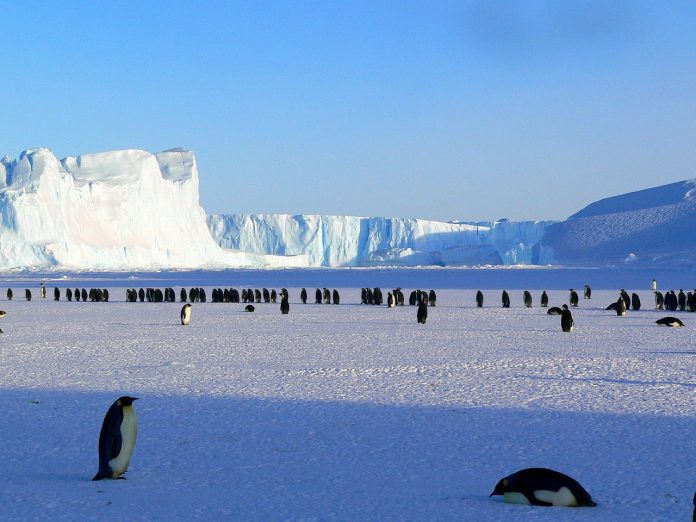Emperor penguins on the edge of the Brunt Ice Shelf in the Weddell Sea in Antarctica need patches of sea-ice to breed and the ice must stay in place until the young chicks are ready to swim. A scientists’ report from the British Antarctic Survey (BAS) says that thousands of penguin chicks from the Emperor penguins colony disappeared overnight in 2016 when a severe storm with strong winds destroyed the sea-ice they were being raised on, drowning them.
Drs Peter Fretwell and Phil Trathan first noticed the disappearance of the Halley Bay colony in satellite pictures. Scientists also say that the Emperor penguins have not tried to breed there again, it seems the sea-ice hasn’t reformed but they aren’t sure if it’s because of climate change, atmospheric and ocean observations in the vicinity of the Brunt reveal little in the way of change.
Meanwhile, some penguins have left for other breeding sites across the Weddell Sea, and it seems that a colony 50km away, close to the Dawson-Lambton Glacier, has seen a recent rise in numbers. Research also shows that the disappearing sea-ice could lessen the Emperor penguin population by 70 percent by the end of the century. The Antarctic Emperor colony makes up between 5 and 9 percent of the global population.
Emperor penguins are the tallest and heaviest of the penguin species and they need dependable sea-ice on which to breed from April when the birds arrive, until December when their chicks fledge. But if the sea-ice breaks up too early, the chicks will not have the right feathers to start swimming, which seems to have happened back in 2016. Dr Fretwell said:
“The sea-ice that’s formed since 2016 hasn’t been as strong. Storm events that occur in October and November will now blow it out early. So there’s been some sort of regime change. Sea-ice that was previously stable and reliable is now just untenable.”










